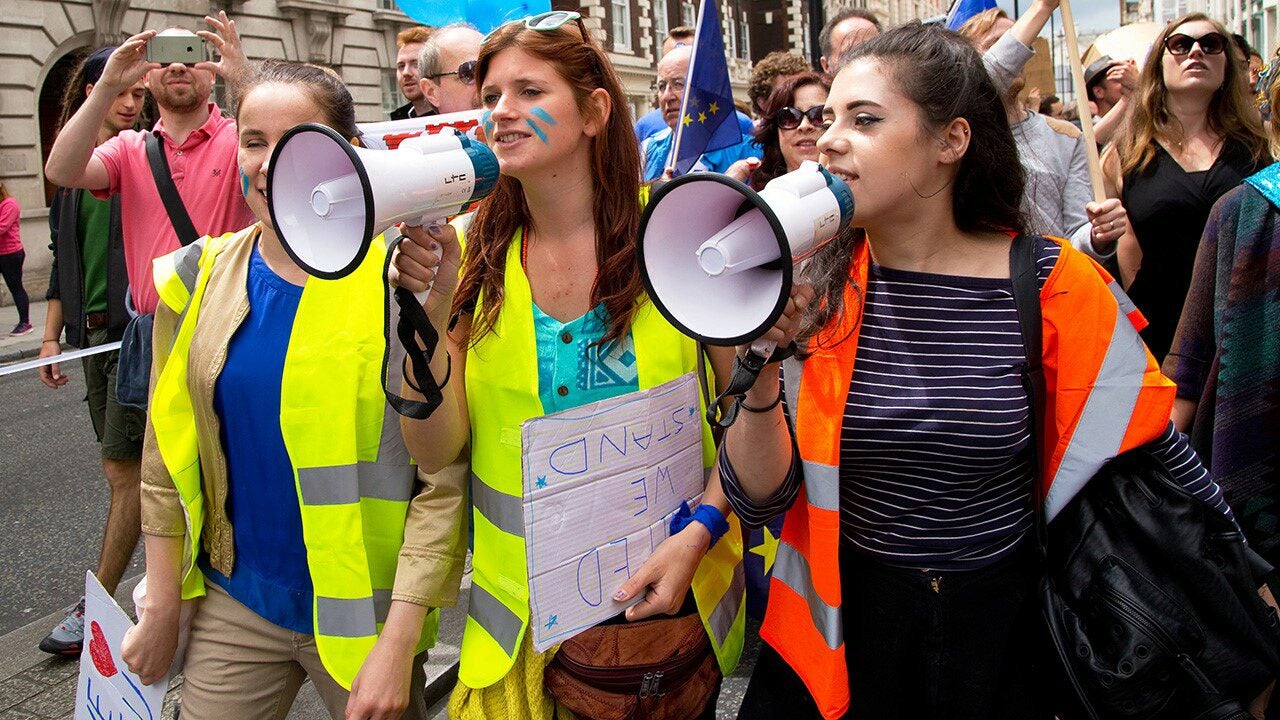Educator Toolkit: Leadership in the Age of Activism


As multitudes of students under the age of 20 rally around climate change and other politically charged topics, such as gun control, many are challenging the role of business and politicians in supporting real change. Greta Thunberg, a 16-year-old from Sweden, has quite literally become the face of youth climate-change activism, confronting world leaders and daring them to take a stand.
This provides great context for not only studying critical social impact issues, but also discussing students’ roles in this new youth-movement world order, which Wharton leadership expert Michael Useem has called, “a sea change in how we think about the world.” What does it mean to be a leader for great change? How can students who are inspired by other teens like Thunberg and gun control advocate Emma Gonzalez develop their own leadership skills to also become agents of change?
Use the resources below to spark classroom conversation on a wide variety of topics and help your students embrace the power of the moment to prepare for their future as global leaders.
Article
Embracing Leadership in an Era of Activism
These past few years have been full of teachable moments, often set off by tragic headlines. We have all watched the drama unfold and looked to young leaders like climate change activist Greta Thunberg to understand the passion and purpose behind the rising youth movement. Use this series of KWHS articles, including Parkland Activism: Teens Embrace the Power of the Moment and The Global Climate Strike and How Business Is Responding in the Face of Activism, to discuss implications from the shift toward youth awareness and activism, and then the linked leadership article to explore some simple ways that students can grow as leaders. These issues are not specific to the United States. For example, youth have a strong voice in Brexit and are quite literally leading the ongoing Hong Kong protests.
Use conversation starters with each article to help students look inward and discover connections. Here’s an example from the Parkland story: “Has this national conversation awakened something in you? Explain your personal response to what is happening in the U.S. and how you feel you can personally make a difference.” Liza Cowan, the English teacher who founded R.E.A.L. Discussion, a discussion-based learning system for secondary schools, says, “In today’s world, the stakes are high: students need to graduate confident that their voices matter and competent at engaging others with inquiry, evidence, and empathy.” Get them talking.
Lesson Plan
Finding Opportunity in Challenges (Leadership)
In many ways, the youth movement illustrates this very concept – rather than throwing their hands up in despair, students are confronting very serious societal challenges head-on and using them as opportunities to influence change. In essence, it is the secret sauce of problem solving. But it’s not always intuitive and often requires a shift in how we think about challenges and opportunities. In this lesson, the teacher and students discuss the importance of attitude — how a challenge can also be seen as an opportunity. Ideally, both teacher and students will help each other throughout the lesson to work this principle in practice.
Explore our full library of educator toolkits HERE!
Hands-on Learning
Reading, writing and talking about leadership are invaluable to exploration and growth. Enrich all of these on-ramps to leadership development by inviting a guest speaker into your classroom for a robust presentation and Q&A session. Research community and school-based resources to discover youth and youthful leaders who would no doubt love to share their experiences and engage with tomorrow’s leaders. In the context of this Toolkit theme, a grassroots and entrepreneurial approach would be most compelling and authentic, rather than someone speaking from an established position of power. Consider the following topics as you research potential speakers:
Incorporate an added layer of leadership training by assigning student teams or asking for student volunteers to tackle researching, locating and reaching out to potential speakers, either from their school or broader community. While an in-person guest is always inspiring, the Internet and video conferencing may well broaden your possibilities.
Knowledge@Wharton High School wants to hear about your guest speakers, especially as we work on creating our own Speakers Bureau for students and educators around the world. Contact us with your stories, share your experiences in the Comment section of the extended version of this Toolkit, or tag us on social media @WhartonHS on Twitter and @WhartonYouth on Instagram and Facebook.
Video Glossary
Provide an extra layer of learning for your students with our video glossary. Here, Wharton professor Amanda Shanor defines terms: American Civil Liberties Union, Civil Rights, First Amendment, Freedom of Speech and Masterpiece Cakeshop.
KWHS Quote of the Month
“When we see students who survived the Parkland shooting voicing their frustration and anger over the lack of effective gun regulations, we feel inspired to unite with them in our shared anger over the amount of innocent lives lost already, and to show our support. It has awakened a pride and a hope in my generation.” –High School Student Julia Drake, Teens Embrace the Power of the Moment.